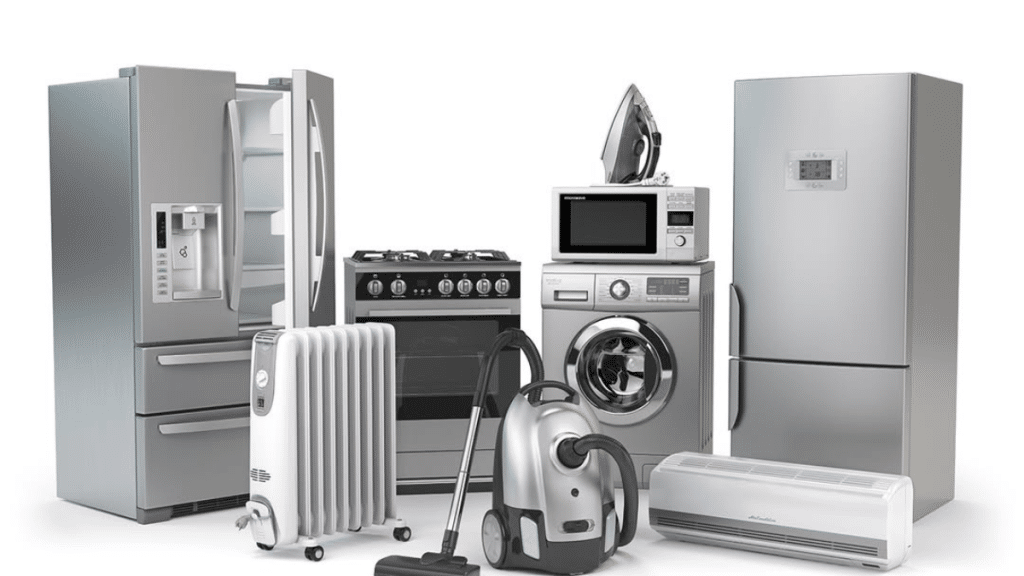Introduction
In today’s world, electronic devices are an essential part of everyday life, shaping how we communicate, work, and entertain ourselves. With a wide array of options available on the market, choosing the right electronics for your home can be overwhelming. The key to making the best decision lies in understanding your specific needs and how different devices can contribute to your lifestyle. This guide aims to simplify the process of selecting electronic devices for your home by highlighting key factors to consider, from functionality to energy efficiency.
Understanding Your Electronics Needs
Before you start shopping, it’s crucial to evaluate your needs. Not every device is necessary for every home. Consider what you primarily use your electronics for. Are you looking for entertainment solutions, such as TVs and gaming consoles, or do you need productivity tools like laptops and home office equipment? Also, think about the size of your home. Smaller spaces may require more compact or multi-functional devices, while larger homes may benefit from more specialized equipment.
Additionally, consider the number of people in your household and their individual needs. A family may require a variety of devices to cater to different interests, while a single user might prefer more streamlined options. Identifying your specific requirements will help narrow down the choices, making the selection process much easier.
Key Categories of Electronics
Electronics for the home can be broadly divided into several categories, each serving a distinct purpose. Here are the most common categories to consider:
- Entertainment
- TVs and Home Theaters: For immersive viewing experiences, from movies to sports.
- Speakers and Sound Systems: For quality audio in your living space.
- Gaming Consoles: If gaming is a primary activity in your household.
- Personal Devices
- Laptops and Desktops: For productivity, work, and entertainment.
- Smartphones and Tablets: Portable and versatile for both work and leisure.
- Wearable Technology: Devices like smartwatches and fitness trackers.
- Home Appliances
- Kitchen Appliances: From refrigerators to coffee makers, ensuring your kitchen is equipped for daily tasks.
- Cleaning Equipment: Such as vacuum cleaners and robotic vacuums for efficient housekeeping.
- Climate Control Devices: Air conditioners, humidifiers, and fans to maintain comfort.
- Smart Home Devices
- Smart Speakers and Assistants: To control other smart devices and perform tasks like setting alarms or controlling the thermostat.
- Security Cameras and Smart Locks: To enhance home security and monitoring.
Choosing the Right Electronics Based on Usage
The right electronics depend on how you plan to use them. For instance, a high-quality sound system might be essential for a family that enjoys movie nights or listening to music at home. On the other hand, if you mainly need a computer for professional tasks, investing in a laptop with a powerful processor, sufficient storage, and a good display might be more important than focusing on gaming features.
Here are some tips to help you make an informed decision:
- Determine Primary Usage: Will the device be used for work, entertainment, or both?
- Assess Features: Make sure the device’s features align with your needs. For example, if you’re working from home, prioritize laptops with ergonomic designs and extended battery life.
- User-friendliness: Choose devices that are easy to set up and use, especially if you are not tech-savvy.
Energy Efficiency and Sustainability
Incorporating energy-efficient and sustainable devices into your home not only helps reduce your environmental footprint but also lowers electricity costs. When choosing electronic devices, look for energy ratings, such as ENERGY STAR certification, to ensure the product uses less energy while still delivering performance. Additionally, consider purchasing electronics made from sustainable materials or those designed to be easily recyclable at the end of their lifecycle.
The Impact of Technology on Lifestyle
Technology’s role in shaping modern lifestyles cannot be overstated. Electronics can enhance your daily life by providing convenience, connectivity, and entertainment. Smart home devices, for example, allow you to automate tasks such as adjusting your thermostat or lighting with a simple voice command. Meanwhile, personal devices such as tablets and smartphones keep you connected to work, family, and entertainment, wherever you go.
However, it’s also important to strike a balance. While these devices offer many benefits, they can also introduce distractions or lead to excessive screen time. To make the most of technology, it’s important to set boundaries and prioritize how each device fits into your life in a meaningful way.
Maintenance and Longevity of Electronics
To maximize the value of your electronics, regular maintenance and proper care are essential. Here are some tips for ensuring the longevity of your devices:
- Regular Cleaning: Dust and dirt can accumulate over time, so clean your devices regularly to prevent overheating and wear.
- Software Updates: Keep your devices up-to-date with the latest software to enhance functionality and security.
- Proper Storage: Store electronics in a safe place to avoid physical damage, especially for portable devices like laptops and smartphones.
- Extended Warranties: Consider purchasing extended warranties for higher-end electronics to protect against unexpected repairs or replacements.
Conclusion
Choosing the right electronic devices for your home can seem like a daunting task, but with a clear understanding of your needs and priorities, it becomes manageable. By assessing your requirements, exploring the different categories of electronics, and considering factors like energy efficiency and maintenance, you can make informed choices that will enhance your lifestyle. Remember to focus on the devices that will serve you best in the long run, keeping in mind that technology should be a tool to improve daily life, not an obstacle to it.

